
Overview
GAO Tek offers hydrogen chloride gas detectors essential in the utility industry compliance, quality, and efficiency and is trusted by top companies. The utilities industry, where monitors for the presence of this highly corrosive and hazardous substance. HCl gas, encountered in various industrial processes like chemical manufacturing and power generation, poses significant risks to personnel and equipment. These detectors employ advanced sensing technologies to continuously monitor the environment, triggering alarms or shutdown systems upon detection of HCl gas leakage. By providing real-time monitoring and early warning capabilities, they enable proactive management of HCl gas exposure, ensuring occupational safety standards are met and preventing accidents. In industries where HCl gas is used or produced as a byproduct, these detectors play an indispensable role in safeguarding workers and critical infrastructure.
Depending on specific features and functions, GAO Tek’s Hydrogen Chloride Gas Detectors are sometimes referred to as HCl gas sensors, hydrochloric acid detectors, chlorine gas detectors, acid gas monitors, and HCL leak detectors.
Furthermore, GAO Tek’s Hydrogen Chloride Gas Detectors are further grouped into:
Alarm-Enabled, Auto Power-Off, Data Logging, Handheld , High Precision, and Outdoor
GAO Tek’s Hydrogen Chloride Gas Detectors have the following applications in the utility industry:
- Power Generation Plants: GAO Tek’s hydrogen chloride gas detectors are utilized in power plants, especially those with combustion processes like coal or biomass combustion, where chlorine content in fuels can lead to HCl gas emissions. Detecting HCl gas leaks helps prevent corrosion of equipment and ensures the safety of personnel working in these environments.
- Wastewater Treatment Facilities: GAO Tek’s hydrogen chloride gas detectors are deployed to monitor HCl levels, preventing exposure risks to workers and maintaining the integrity of infrastructure by averting corrosion damage.
- Chemical Manufacturing: GAO Tek’s hydrogen chloride gas detectors play a vital role in these facilities to monitor for leaks and prevent accidents, ensuring worker safety and regulatory compliance.
- Natural Gas Processing: GAO Tek’s hydrogen chloride gas detectors are essential for monitoring the presence of HCl, which can be present in trace amounts in natural gas streams. Detecting and mitigating HCl leaks is crucial for protecting equipment integrity and the safety of workers.
- Emergency Response Preparedness: GAO Tek’s hydrogen chloride gas detectors as part of their emergency response systems. These detectors are strategically placed in key areas to provide early warnings of HCl gas leaks, enabling rapid response measures to be implemented to protect personnel and facilities.
- Refineries and Petrochemical Plants: GAO Tek’s hydrogen chloride gas detectors are instrumental in monitoring various processes involving hydrocarbons and catalysts that may release HCl gas as a byproduct. Continuous monitoring helps prevent potential hazards such as equipment corrosion, ensuring uninterrupted operations and worker safety.
- HVAC Systems and Indoor Air Quality Monitoring: GAO Tek’s hydrogen chloride gas detectors are integrated to monitor indoor air quality. They detect any HCl leakage from cooling systems or other sources, allowing for prompt maintenance and preventing potential health risks to occupants within the facilities. Additionally, these detectors contribute to maintaining regulatory compliance regarding indoor air quality standards.
More information on hydrogen chloride gas detectors and their applications in other industries can be found on
Hydrogen Chloride Gas Detectors
This category page lists related products
Systems in the Utilities Industry utilizing Hydrogen Chloride Gas Detectors
Here are some popular systems in the utilities Industry using hydrogen chloride gas detectors:
Gas Scrubbing Systems:
- Gas scrubbing systems in utilities employ hydrogen chloride (HCl) gas detectors to monitor the efficiency of scrubbers designed to remove HCl gas from industrial emissions. These detectors ensure that the scrubbers are functioning effectively, preventing HCl gas from being released into the atmosphere, thus maintaining environmental compliance and protecting public health.
Emergency Ventilation Systems:
- Emergency ventilation systems in utility facilities utilize HCl gas detectors to trigger ventilation actions in the event of an HCl gas leak. These detectors are integrated into the system to provide rapid detection of HCl gas, activating ventilation fans to remove the gas from affected areas and mitigate potential health and safety risks to personnel.
Process Control Systems:
- Process control systems within utility operations incorporate HCl gas detectors to monitor HCl levels in various industrial processes. These detectors provide real-time data on HCl gas concentrations, allowing for immediate adjustments to process parameters to prevent overexposure to HCl gas, optimize production efficiency, and ensure the safety of workers and equipment.
Safety Shutdown Systems:
- Safety shutdown systems in utility installations utilize HCl gas detectors as part of their safety protocols. These detectors are interconnected with automated shutdown mechanisms, such as valves or pumps, to quickly halt operations in the event of a detected HCl gas leak, preventing further escalation of hazards and facilitating rapid response measures to mitigate risks.
Air Quality Monitoring Systems:
- Air quality monitoring systems deployed in utility facilities incorporate HCl gas detectors to assess ambient air quality both indoors and outdoors. These detectors continuously monitor HCl gas levels, providing data for compliance with regulatory standards, ensuring the health and safety of personnel, and minimizing environmental impact by detecting and addressing sources of HCl emissions.
Incineration Systems:
- Incineration systems used in utilities for waste disposal may utilize hydrogen chloride (HCl) gas detectors to monitor the combustion process. These detectors ensure that HCl gas concentrations remain within safe limits during waste incineration, preventing potential environmental pollution and ensuring compliance with emissions regulations.
Pipeline Monitoring Systems:
- Utilities often rely on pipelines for the transportation of various gases, including those containing hydrogen chloride. Pipeline monitoring systems incorporate HCl gas detectors to continuously monitor the integrity of the pipelines and detect any leaks or releases of HCl gas. By providing early detection, these systems enable prompt response actions to mitigate risks to public safety, prevent environmental contamination, and maintain the reliability of the utility infrastructure.
GAO Tek’s targeted markets are North America, particularly the U.S. and Canada.
Complying with Government Regulations
GAO Tek’s hydrogen chloride gas detectors comply or help our customers comply with U.S. government regulations such as:
- Occupational Safety and Health Administration (OSHA) regulations
- Environmental Protection Agency (EPA) regulations
- National Fire Protection Association (NFPA) standards
- Clean Air Act (CAA) requirements
- Hazard Communication Standard (HCS)
- Process Safety Management (PSM) regulations
- National Institute for Occupational Safety and Health (NIOSH) guidelines
- Department of Transportation (DOT) regulations
- American National Standards Institute (ANSI) standards
- Chemical Facility Anti-Terrorism Standards (CFATS)
- Emergency Planning and Community Right-to-Know Act (EPCRA)
- Toxic Substances Control Act (TSCA) regulations
GAO Tek’s hydrogen chloride gas detectors comply or help our clients comply with Canadian regulations such as:
- Canadian Environmental Protection Act (CEPA)
- Canada Labour Code
- Transportation of Dangerous Goods Act
- Workplace Hazardous Materials Information System (WHMIS) regulations
- Canadian Occupational Health and Safety (OHS) Regulations
- Canadian Environmental Assessment Act (CEAA)
- Canadian Nuclear Safety Commission (CNSC) regulations
- Canadian Council of Ministers of the Environment (CCME) guidelines
- Canadian Standards Association (CSA) standards
- Canada Gazette regulations
- Pest Control Products Act (PCPA) regulations
- Canadian Food Inspection Agency (CFIA) regulations
Case Studies of Hydrogen Chloride Gas Detectors in the Utilities Industry
Hydrogen chloride gas detectors are sometimes called HCl gas sensors, hydrochloric acid detectors, chlorine gas detectors, acid gas monitors, and HCL leak detectors.
Here are some practical examples of using hydrogen chloride gas detectors in the utilities industry:
In the Northeast region of New York, hydrogen chloride (HCl) gas detectors are widely utilized in utility industries, such as power generation plants, where they play a crucial role in ensuring operational safety and environmental compliance.
In the Northeast region of Washington, in coal-fired power plants prevalent in this region, HCl gas detectors are integrated into emissions control systems to monitor flue gas streams for HCl emissions.
In the Northeast region of the United States, in wastewater treatment facilities across the Northeast, HCl gas detectors are employed to monitor HCl levels in various treatment processes, preventing corrosion of infrastructure and ensuring compliance with environmental discharge standards.
In the Midwest region of Chicago, hydrogen chloride (HCl) gas detectors are integral to the safety protocols of utility industries, particularly in facilities such as chemical manufacturing plants and refineries.
In the Midwest region of Ohio, these detectors continuously monitor HCl levels, ensuring the safety of workers and preventing environmental contamination. Moreover, in petrochemical refineries prevalent in the region, HCl gas detectors are utilized to monitor HCl concentrations in refining processes, where hydrocarbons may release HCl gas as a reaction byproduct.
In the Midwest region of Wisconsin and Minnesota, HCl gas detectors contribute significantly to maintaining safety standards and operational integrity within the utility industry of the Midwest region.
In the Southern region of Florida, in power generation facilities, particularly those utilizing natural gas or oil as fuel sources prevalent in the region, HCl gas detectors are incorporated into emissions monitoring systems to ensure compliance with environmental regulations.
From the bustling ports of Texas and Louisiana, these detectors continuously monitor flue gas emissions for HCl content, enabling prompt adjustments to combustion processes to minimize emissions and prevent environmental harm.
Alabama and Mississippi, practical applications underscore the vital role of HCl gas detectors in promoting safety and environmental stewardship within the utility industry of the southern United States.
In the western region of California, in semiconductor fabrication facilities prevalent in states like California and Oregon, HCl gas detectors are essential for monitoring the use of hydrochloric acid in etching processes.
In the West region of Nevada, these detectors provide real-time monitoring of HCl levels, ensuring the safety of workers and preventing contamination of cleanroom environments.
In the Western region of Montana, in water treatment facilities across the region, HCl gas detectors play a critical role in monitoring and controlling HCl levels, safeguarding infrastructure, and ensuring compliance with regulatory standards.
In the Canadian region, hydrogen chloride (HCl) gas detectors are integral to ensuring safety and environmental protection within utility industries, including mining, pulp and paper manufacturing, and chemical processing.
In the Canadian region of Artic, in pulp and paper mills scattered across regions like British Columbia and Quebec, HCl gas detectors are utilized to monitor the use of chlorine-based bleaching agents in the papermaking process.
In the Canadian region of Quebec, in chemical processing plants situated throughout the country, HCl gas detectors are essential for monitoring HCl levels during various manufacturing processes, enhancing workplace safety, and preventing environmental pollution.
GAO RFID Inc. RFID Hardware, a sister company of GAO Tek Inc., is ranked as the top 10 RFID suppliers in the world. Its RFID, BLE, and IoT products have also been widely used in the utilities industry. Articles about related industries are given below:
Mining, Oil and Gas Extraction industry
Use of Hydrogen Chloride Gas Detectors with Leading Software and Cloud Services in the Utilities industry
GAO Tek has used or has facilitated its customers to use GAO’s hydrogen chloride gas detectors with some of the leading software and cloud services in their applications. Examples of such leading software and cloud services include:
- WS
- Azure
- Google Cloud
- IBM Cloud
- Oracle Cloud
- Salesforce Cloud
- SAP Cloud Platform
- VMware Cloud
- ServiceNow
- Adobe Experience Cloud
- Alibaba Cloud
- Cisco Cloud
- Dell Cloud
- Box
- Dropbox
- NetApp Cloud
- Red Hat OpenShift
- Slack
- Workday Cloud
- Zendesk Sunshine
GAO Tek’s hydrogen chloride gas detectors and their applications in other industries are listed on
Hydrogen Chloride Gas Detectors
Other related products can be found on this category page
Meeting Customers’ Demands
Large Choice of Products
To satisfy the diversified needs of their corporate customers, GAO Tek Inc. and its sister company GAO RFID Inc. together offer a wide choice of testing and measurement devices, network products, RFID, BLE, IoT, and drones.
Fast Delivery
To shorten the delivery to our customers, GAO has maintained a large stock of its products and can ship overnight within the continental U.S. and Canada from the nearest warehouse.
Local to Our Customers
We are located in both the U.S. and Canada. We travel to customers’ premises if necessary. Hence, we provide very strong local support to our customers in North America, particularly the U.S. and Canada.
Furthermore, we have built partnerships with some integrators, consulting firms, and other service providers in different cities to further strengthen our services. Here are some of the service providers in the utilities industry we have worked with to serve our joint customers:
- Vaisala
- Luft
- Campbell Scientific
- Climatronic
- Ammonite Measurement
- FT Technologies
- Thies Clime
- RM Young
- Gill Instruments
- Met One Instruments
- PCE Instruments
- Delta Ohm
- Kipp & Zonin
- Pulsar Measurement
GAO has Many Customers in the Utilities Industry
The products from both GAO Tek Inc. and GAO RFID Inc. have been widely used in the utility industry by many customers, including some leading companies. Here is more information on applications of GAO RFID Inc.’s products in the utilities industry. Articles about related industries are given below:
Mining, Oil and Gas Extraction industry
Here are some of GAO’s customers in the utilities industry:
- Duke Energy
- NextEra Energy
- Exelon Corporation
- Southern Company
- American Electric Power (AEP)
- Dominion Energy
- Pacific Gas and Electric Company (PG&E)
- Consolidated Edison (Con Edison)
- Xcel Energy
- EDF Energy
- AES Corporation
- FirstEnergy Corporation
- SSE plc
- Hydro One
- Engie
- National Grid
- Hydro-Quebec
- Enel
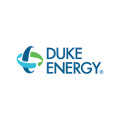
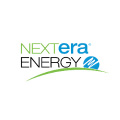
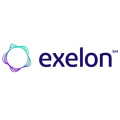

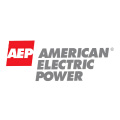
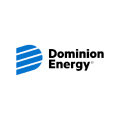
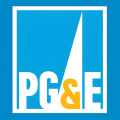
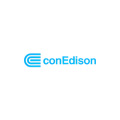
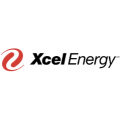


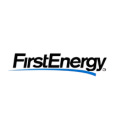

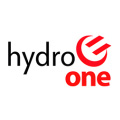
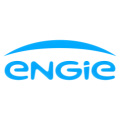
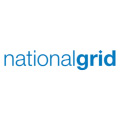

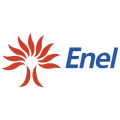
Contact Us
Here are GAO Tek’s Hydrogen Chloride Gas Detectors and they are further organized by feature:
Alarm-Enabled, Auto Power-Off, Data Logging, Handheld , High Precision, and Outdoor
If you have any questions about our products or want to place an order, our technical experts can help you.
Please fill out this form or email us
